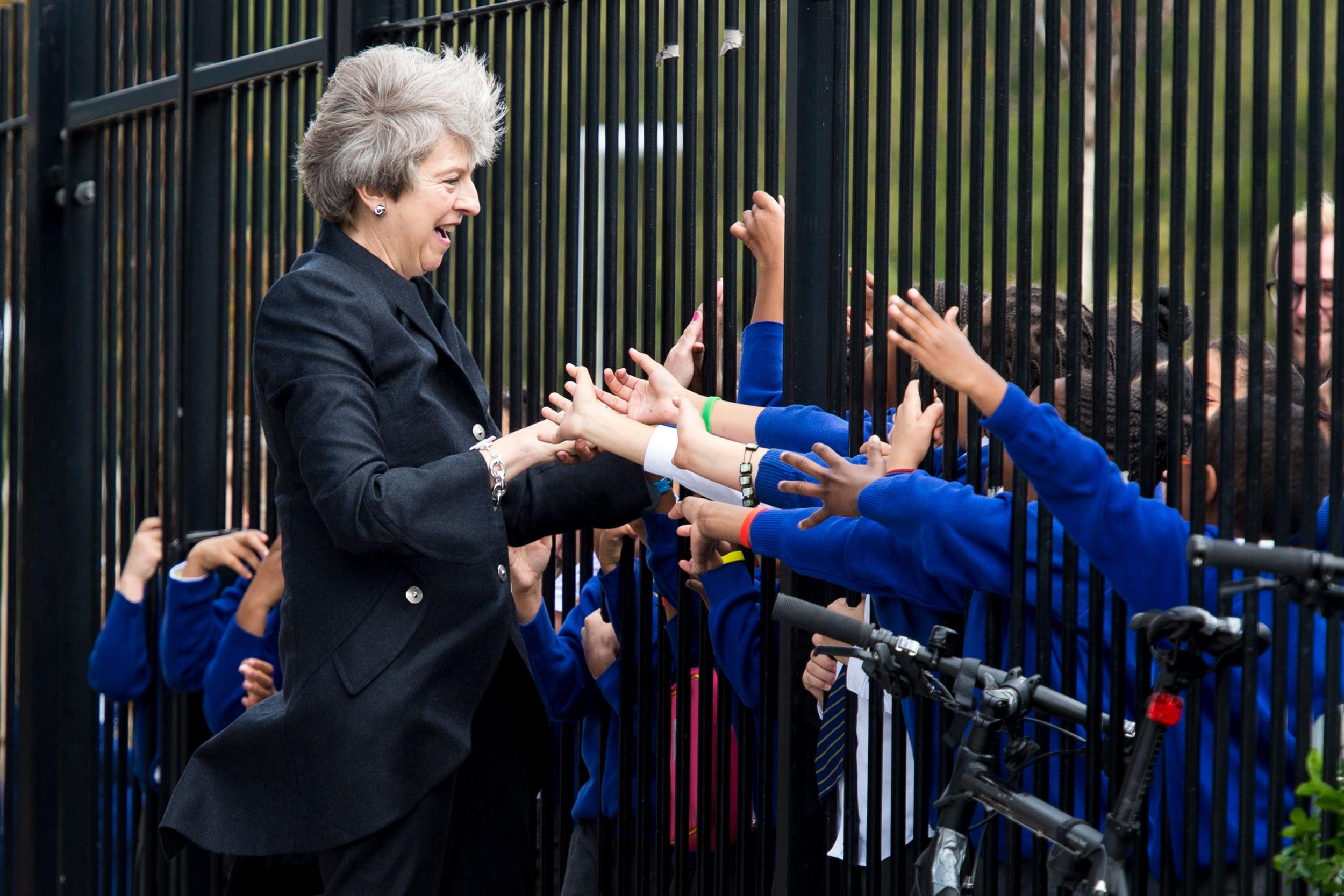Theresa May launches £500m education programmes with China
The Prime Minister will also announce an expansion of teaching and language programmes

Your support helps us to tell the story
From reproductive rights to climate change to Big Tech, The Independent is on the ground when the story is developing. Whether it's investigating the financials of Elon Musk's pro-Trump PAC or producing our latest documentary, 'The A Word', which shines a light on the American women fighting for reproductive rights, we know how important it is to parse out the facts from the messaging.
At such a critical moment in US history, we need reporters on the ground. Your donation allows us to keep sending journalists to speak to both sides of the story.
The Independent is trusted by Americans across the entire political spectrum. And unlike many other quality news outlets, we choose not to lock Americans out of our reporting and analysis with paywalls. We believe quality journalism should be available to everyone, paid for by those who can afford it.
Your support makes all the difference.Theresa May has launched a major expansion of education programmes with China including deals worth some £550m to the economy.
The Prime Minister kicked off her three-day visit to the country with the announcements that also including an expansion of a maths teacher exchange scheme and an English language project.
Ms May wants to use the trip to bang the drum for UK exports and win new investment, with a particular focus on post-Brexit Britain.
She said: “The agreements we have signed today will build on [existing cooperation] and enable more children and more young people than ever to share their ideas about our two great nations. And by teaching children to speak our languages we will ensure that our golden era of cooperation will endure for generations to come.”
The education deals totalling more half a billion pounds and expected to create over 800 jobs in the UK, included a £75m export win for the UK’s biggest childcare provider. Busy Bees will open 20 new nurseries across China on the back of the visit, on which Ms May has taken her biggest ever business delegation.
She announced the deals from the Chinese city of Wuhan, which has the largest student population of any city in the world.
Chinese people already constitute the largest single source of overseas students in the UK, with 155,000 currently in the country and worth an estimated £5bn annually to the economy.
There are also now some 9,000 young British people studying in China, with numbers up 60 per cent since 2013.
Ms May’s announcements also included a new commitment to extend the UK-China maths teacher exchange primary school programme for a further two years to 2020. This will enable an additional 140 primary teachers and 45 secondary school teachers in England to benefit from further training in China. The project involves English teachers visiting China for two weeks and vice versa, and learning from each other’s methods.
The Prime Minister also launched the new “English is GREAT” campaign, promoting proficiency in the language for more people in China. There are more than 300 million people learning English in China, but standards are at the lowest levels in the whole of Asia.
The programme seeks to echo the UK-Mandarin Excellence Programme, launched in 2016 and which aims to have 5,000 secondary school pupils in the UK fluent in Mandarin by 2020. Education Secretary Damian Hinds said: “Mandarin is the most spoken language in the world, so this partnership will play a crucial role in teaching pupils the knowledge and skills they need to succeed in an increasingly global economy.”
Join our commenting forum
Join thought-provoking conversations, follow other Independent readers and see their replies
Comments